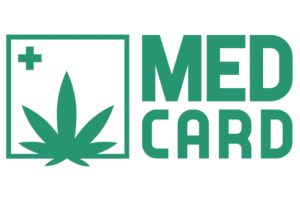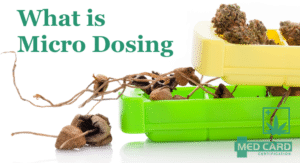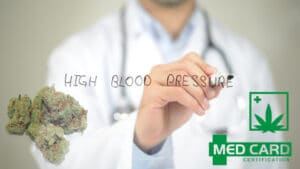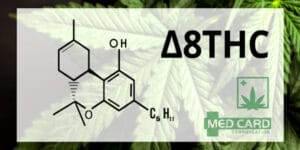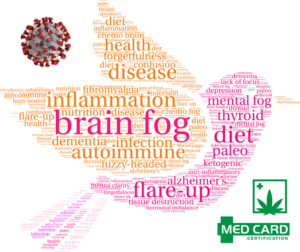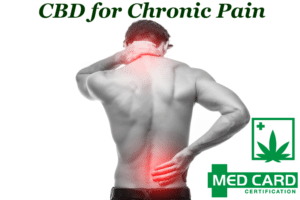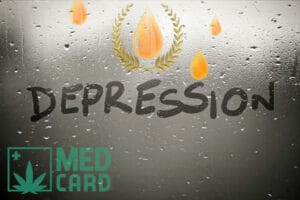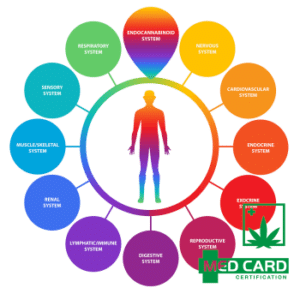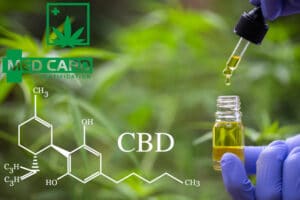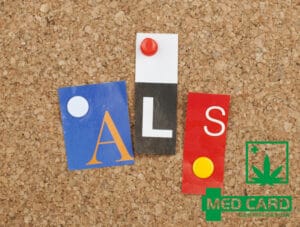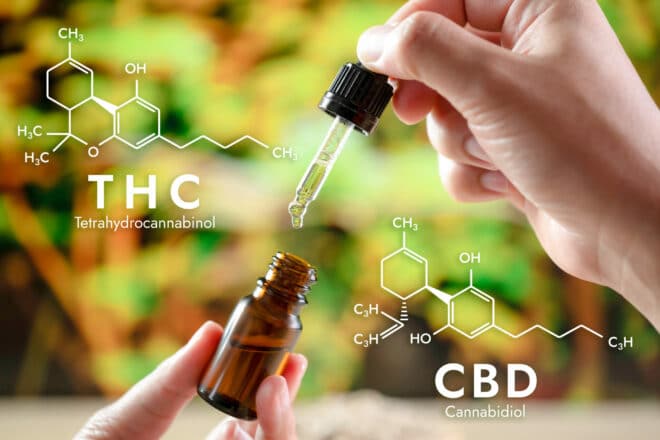
CBD In Illinois Guide
CBD became legal nationwide with the passage of the 2018 Farm Bill, which distinguished hemp and marijuana plants as two, distinct varieties of cannabis sativa L. with different chemical constitutions and effects. Under the Farm Bill, CBD was recognized as non-psychoactive in products and hemp plants with THC levels below 0.3%, making the cultivation of hemp plants and the creation of hemp-derived CBD products legal at the federal level.
Today, CBD products derived from hemp can be purchased at CBD stores, grocery stores, and various other retail locations throughout the state of IL. Hemp-derived CBD is not to be confused with marijuana-derived CBD, which can only be purchased at dispensaries.
Below, we provide a detailed guide with everything you need to know about CBD in Illinois, from laws and regulations, to retailers, medical benefits, product types, and THC alternatives often sold at CBD stores.
Legal Status
Here’s a brief overview of the laws surrounding CBD in Illinois:
Purchasing CBD
Anyone over the age of 18 can purchase CBD, and those under 18 can purchase CBD in the presence of a legal guardian, either at a retailer or from dozens of online sources.
Growing Hemp
Unless you hold your medical marijuana card, you are not permitted to grow your own hemp at home. Only medical marijuana cardholders are permitted to grow up to 5 hemp or cannabis plants in their own home.
Farmers who wish to grow hemp for commercial purposes must apply for a license from the state through the Illinois Department of Agriculture, and pay a $100 application fee. If a license is granted, farmers must pay a license fee for each respective cultivation center, which varies based on the duration of the permit. Permits for 1 year have a fee of $375, or farmers can pay $700 for a 2 year permit, and/or $1000 for a three year permit.
After obtaining their permit, farmers must report the locations and sizes of their hemp fields to the Illinois Department of Agriculture, and must certify their hemp seeds with the Association of Official Seed Certifying Agencies.
Selling CBD
With a valid resale permit, nearly any business owner can legally sell CBD in IL, so long as the product is derived from hemp and contains under 0.3% THC.
Where to Buy CBD in IL
A wide variety of businesses in IL sell hemp derived CBD, from gas stations and grocery stores to specialty CBD shops and chain pharmacies such as Walgreens. Marijuana-derived CBD, on the other hand, can only be purchased from Illinois dispensaries.
In Illinois, some of the best specialty CBD stores are located in cities such as Chicago, Aurora, Naperville, Joliet, Rockford, Springfield, Elgin, Peoria, and many others.
CBD vs. THC: Differences and Similarities
Both CBD and THC are phytocannabinoids that are naturally produced in cannabis plants. However, CBD and THC come from different types of the cannabis sativa species: hemp and marijuana, respectively.
CBD is the dominant compound in hemp, which contains only trace, non psychoactive amounts of THC under the legal limit of 0.3%. This is why hemp-derived CBD products are recognized as legal and non-intoxicating under the 2018 Farm Bill. Marijuana, by contrast, is dominant in THC, and contains only small traces of CBD.
Hemp and marijuana are legally and scientifically recognized, separated, and distinguished as two different subtypes of the cannabis sativa L. variety, which have completely different botanical and chemical constitutions.
CBD, THC, and the Endocannabinoid System
Because of differences in their molecular structure, CBD and THC interact with the endocannabinoid system (ECS) in different ways. The ECS comprises a series of cannabinoid receptors–CB1 and CB2–that spread throughout the body and brain, and that fit with certain cannabinoids in a “lock and key” fashion.
Unlike CBD, THC produces psychoactive effects due to its high affinity with CB1 receptors, which are located throughout the central nervous system, and control various psychological processes such as cognition, emotion, perception, and various other physiological processes.
CBD, on the other hand, has a low affinity for CB1 receptors, which is why it does not produce psychoactive effects Nonetheless, CBD still interacts with these receptors to produce its benefits for body and mind.

Benefits & Conditions Treated with CBD
Benefits of CBD
CBD is associated with an exhaustive list of benefits far too long to list in its entirety. To name just a few examples, CBD has become increasingly popular for its ability to relieve pain; inflammation; nausea; mental health conditions, such as anxiety, depression, and PTSD; spasms; opioid cravings; and more. CBD is also known to promote restful sleep; strengthen the immune system; act as an antioxidant; and support neurological health.
Many of these benefits–such as CBD’s anti-inflammatory properties–make CBD popular for treating a wide variety of conditions. Below are a list of conditions that customers commonly use CBD to manage:
- ADD
- ADHD
- Addiction & Alcoholism
- ALS (Amyotrophic Lateral Sclerosis)
- Alzheimer’s Disease
- Anorexia
- Anxiety
- Arthritis
- Asthma
- Atherosclerosis
- Autism Spectrum Disorder (ASD)
- Autoimmune Diseases
- Bipolar
- Cancer
- Colitis & Crohn’s Disease
- Depression
- Diabetes
- Endocrine Disorders
- Epilepsy & Seizures
- Fibromyalgia
- Hair Loss
- Heart Disease
- HIV & AIDS
- Inflammation
- Insomnia
- Kidney Disease
- Liver Disease
- Migraines
- Mood Disorders
- Multiple Sclerosis (MS)
- Nausea
- Neurodegeneration
- Obesity
- Osteoporosis
- Pain
- Parkinson’s Disease
- PTSD
- Rheumatism
- Schizophrenia
- Shingles
- Sickle Cell Anemia
- Skin Conditions
- Sleep Disorders
- Stress
- Stroke
- Tourette’s Syndrome
- Traumatic Brain Injuries
Types of CBD Products Sold in Illinois
CBD products are sold in a wide variety of formats, and in IL, you may see CBD in the following forms:
- Tinctures
- Smokeable flower and prerolls
- Edibles
- Capsules
- Topical Creams and Lotions
- Transdermal Patches
- Bath Bombs
- Water Soluble Tinctures
- CBD-Infused Beverages
- Concentrates & Isolate
- Vapes
And many more. The benefits of CBD can vary depending on the delivery format you choose, so be sure to talk to your healthcare provider–or a trained expert at a specialty CBD store–to determine which form of CBD is best for you and your needs.
Hemp-Derived THC Alternatives
Though hemp generally contains non-psychoactive amounts of THC, it can nonetheless be processed to create legal, psychoactive THC alternatives that are sold in the same formats and locations as CBD products, and have become popular on today’s market. Below, we cover a few of these compounds and their respective effects:
Delta 8 THC
Delta 8 is one of the most popular hemp-derived THC alternatives. Delta 8 is suggested to produce a high similar to that associated with marijuana, but potentially less intense, and may come without the negative side effects–such as paranoia–associated with consuming too much Delta 9 THC. The high produced by Delta 8 is described as mellow and enjoyable, and it is thought to reduce anxiety and stress, inflammation, pain, and nausea. Anecdotal reports suggest that Delta 8 improves mood, mental clarity, relaxation, and sleep.
THCO
THCO is a synthetic, hemp-derived compound that offers psychoactive effects similar to those produced by marijuana derived THC. In fact, some customers find that THCO can produce effects that are even more potent, euphoric, and intense. Some reports suggest that THCO may be three times as potent as Delta 9 THC from marijuana, and 5 times more potent than Delta 8 THC. THCO is also suggested, according to anecdotal reports, to offer a “high” with unique aspects that consumers won’t necessarily achieve with Delta 9 THC. Though speculative, anecdotal reports are emerging calling THCO the “psychedelic cannabinoid” because of its effects on perception, thought, and perspective. In other words, THCO may offer a more invigorating, thoughtful, mentally-active–and involved–high than marijuana. It is also known to produce a high degree of euphoria.
HHC
Like Delta 8 and THCO, HHC is another, synthetic THC alternative derived from hemp. Compared to Delta 9, HHC is reported to deliver a milder, more manageable psychoactive experience. Anecdotal reports suggest that HHC produces a pleasant body high; boosts mood, energy, and stamina; increases focus and alertness; and soothes discomfort. Some customers seem to prefer HHC over other THC alternatives because of its energizing, sativa-like high.
Delta 10 THC
According to anecdotal reports, Delta 10 offers a more energizing, uplifting high, whereas Delta 8 is known for its relaxing, more sedating properties. To this extent, you might think of the differences between Delta 8 and Delta 10 as the differences between indica and sativa strains of marijuana, respectively
Meanwhile, many CBD companies have begun to produce products such as edibles with smaller quantities of CBD–while maintaining a level of less than 0.3% THC per container–to harness the psychoactive effects of Delta 9 found in the hemp plant.



